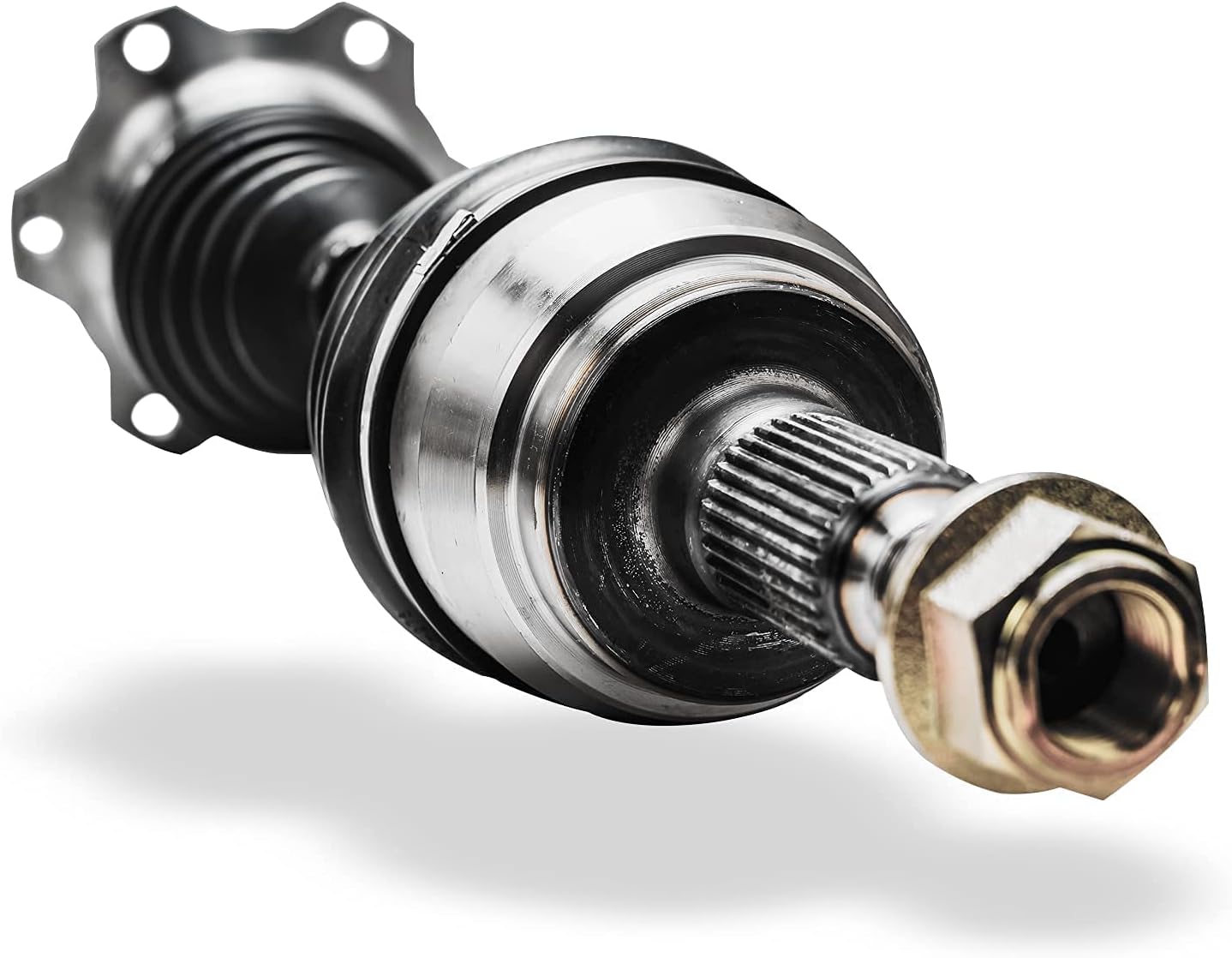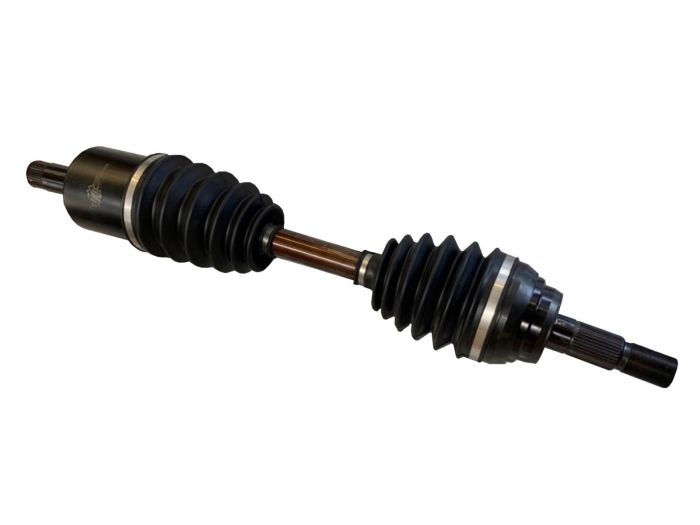Product Description
Product Description
1.We are manufacturer of cv drive shaft,cv axle, cv joint and cv boot, we have more than 20-years experience in producing and selling auto parts.
2.We have strict quality control, the quality of our products is very good.
3.We are professional in different market around the world.
4.The reviews our customers given us are very positive, we have confidence in our products.
5.OEM/ODM is available, meet your requirements well.
6.Large warehouse, huge stocks!!! friendly for those customers who want some quantity.
7.Ship products out very fastly, we have stock.
| Product Name | Drive shaft | Material | 42CrMo alloy steel |
| Car fitment | VW (FAW) | 12 months | |
| Model | Bora/GOLF IV (1J1)/GOLF V (1K1)/GOLF VI (5K1)/GOLF VII (5G1) | ZHangZhoug, China | |
| year | 2008-2016/2016-/2001-2009/2009-2014/2009-2014/2013- | 4 PCS | |
| OE number | C-VW016-8H | 1-7 days | |
| OEM/ODM | Yes | Brand | GJF |
| Packing size | 0.74*0.26*0.26 | L/C,T/T,western Union,Cash,PayPal | |
| Sample service | Depends on the situation of stock | Weight | About 3.7kg-14.5kg |
Detailed Photos
Customer Review
Packaging & Shipping
FAQ
| After-sales Service: | 12 Months |
|---|---|
| Condition: | New |
| Axle Number: | 1 |
| Application: | Car |
| Certification: | ASTM, CE, DIN, ISO |
| Material: | Alloy |
| Samples: |
US$ 42/Piece
1 Piece(Min.Order) | |
|---|
| Customization: |
Available
| Customized Request |
|---|

Can you recommend forums or communities where individuals discuss CV axle modifications?
When it comes to discussing CV axle modifications, there are several online forums and communities where individuals share their knowledge and experiences. Here are some recommended platforms where you can find discussions about CV axle modifications:
1. Reddit – r/MechanicAdvice:
The subreddit r/MechanicAdvice is a popular online community where individuals can seek advice, share experiences, and discuss various automotive topics. It has a dedicated user base of mechanics, automotive enthusiasts, and DIYers who are often willing to provide guidance on CV axle modifications and related topics. You can post specific questions or search through existing threads to find relevant discussions.
2. Automotive Forums:
There are several automotive forums that cater to enthusiasts and professionals alike. Websites such as GarageJournal, AutomotiveForums, and Bob Is The Oil Guy have dedicated sections where users discuss modifications, repairs, and troubleshooting related to CV axles and other drivetrain components. These forums often have subforums specific to different vehicle makes and models, allowing for more targeted discussions.
3. Off-Road and 4×4 Forums:
If you are interested in CV axle modifications for off-road or 4×4 vehicles, exploring dedicated off-road and 4×4 forums can be beneficial. Platforms like Pirate4x4, Expedition Portal, and JeepForum host discussions on various modifications, including axle upgrades, differential swaps, and other drivetrain enhancements. These forums provide valuable insights from off-road enthusiasts who have hands-on experience with CV axle modifications in challenging terrain.
4. Manufacturer-Specific Forums:
Many vehicle manufacturers have their own online forums or community platforms where owners and enthusiasts gather to discuss modifications and technical topics. These forums are often divided into sections based on specific models or vehicle categories. If you are looking for information on CV axle modifications for a particular vehicle make, joining the manufacturer-specific forum can provide you with access to discussions, guides, and experiences shared by fellow owners.
5. Social Media Groups:
Social media platforms such as Facebook and LinkedIn also host numerous groups dedicated to automotive enthusiasts, mechanics, and DIYers. Joining relevant groups and communities focused on modifications, customizations, or specific vehicle models can connect you with individuals who have insights and experiences to share regarding CV axle modifications.
Remember to exercise caution and verify information from multiple sources to ensure accuracy and safety when considering CV axle modifications. Engaging in these forums and communities can provide you with a wealth of knowledge, ideas, and guidance from individuals who have firsthand experience with CV axle modifications.
In summary, recommended forums and communities for discussing CV axle modifications include Reddit’s r/MechanicAdvice, automotive forums, off-road and 4×4 forums, manufacturer-specific forums, and social media groups focused on automotive enthusiasts. Exploring these platforms will allow you to connect with like-minded individuals and access valuable discussions and information regarding CV axle modifications.

How often should CV axles be inspected and replaced as part of routine maintenance?
As part of routine maintenance, it’s important to regularly inspect CV axles to identify any signs of damage, wear, or potential issues. The frequency of inspection and replacement can vary depending on several factors, including the vehicle make and model, driving conditions, and manufacturer recommendations. Here’s a general guideline on how often CV axles should be inspected and replaced:
Inspection:
CV axles should be inspected at regular intervals to detect any early warning signs of damage or wear. A visual inspection can be performed during routine maintenance checks, such as oil changes or tire rotations. It’s recommended to inspect the CV axles at least once a year or every 12,000 to 15,000 miles (19,000 to 24,000 kilometers) as a general guideline.
However, certain driving conditions may require more frequent inspections. For example, if you frequently drive on rough or unpaved roads, or if you engage in off-road activities, more frequent inspections may be necessary due to the increased risk of damage or accelerated wear.
During the inspection, it’s important to check for the following signs of potential CV axle issues:
- Cracked or torn CV boots
- Leaking grease or lubricant
- Clicking, popping, or clunking noises when turning
- Vibrations or shuddering during acceleration
- Excessive play or looseness in the CV joints
If any of these signs are observed, further inspection by a qualified mechanic is recommended to assess the condition of the CV axles and determine if replacement is necessary.
Replacement:
The replacement interval for CV axles can vary depending on factors such as the vehicle’s age, mileage, driving conditions, and the specific recommendations of the vehicle manufacturer. In general, CV axles may need to be replaced between 80,000 to 150,000 miles (129,000 to 241,000 kilometers) or after 5 to 10 years of use.
However, it’s important to note that CV axles can fail prematurely due to various factors such as driving habits, environmental conditions, and maintenance history. If any signs of CV axle damage or failure are detected during the inspection or if there is a sudden and significant change in vehicle performance or handling, immediate replacement may be necessary regardless of the mileage or age of the axles.
It’s recommended to follow the maintenance schedule provided by the vehicle manufacturer for specific guidance on CV axle inspection and replacement intervals. Consulting with a trusted mechanic or automotive professional can also provide valuable insights and recommendations based on their expertise and knowledge of your vehicle.
Regular inspection and timely replacement of worn or damaged CV axles are crucial for maintaining the performance, safety, and reliability of your vehicle’s drivetrain.

What are the common causes of CV axle failure, and how can I prevent them?
CV axle failure can occur due to various factors, and understanding the common causes can help in preventing premature failures. Here’s an explanation of the common causes of CV axle failure and how you can prevent them:
1. Lack of lubrication:
Insufficient or contaminated lubrication is a common cause of CV axle failure. The CV joints and bearings require proper lubrication to reduce friction and prevent excessive wear. Regular maintenance, such as checking and replacing the CV axle grease as recommended by the vehicle manufacturer, can help prevent this issue. It’s important to use the correct type and amount of grease specified for your vehicle.
2. Torn or damaged CV boots:
The CV boots protect the CV joints from dirt, debris, and moisture, which can cause premature wear and damage. Torn or damaged CV boots expose the CV joints to these harmful elements, leading to accelerated wear and eventual failure. Regular inspection of the CV boots and prompt replacement if any damage is noticed can prevent this issue. Additionally, avoiding driving over rough terrain or obstacles that can damage the boots can help extend the lifespan of the CV axles.
3. Excessive torque or load:
Subjecting the CV axles to excessive torque or load can lead to premature failure. This can occur due to aggressive driving, sudden acceleration, or heavy towing loads. It’s important to operate the vehicle within its recommended limits and avoid putting excessive stress on the drivetrain components. Being mindful of your driving habits and avoiding abrupt maneuvers can help prevent CV axle failure caused by excessive torque or load.
4. Impact damage:
CV axles are susceptible to impact damage, especially when driving over potholes, speed bumps, or hitting curbs. Such impacts can cause fractures, bends, or misalignments in the CV axles, leading to failure over time. To prevent impact damage, it’s essential to drive cautiously and avoid rough road conditions whenever possible. Maintaining proper tire pressure and ensuring that the suspension components are in good condition can also help minimize the risk of impact damage.
5. Lack of maintenance:
Neglecting regular maintenance can contribute to CV axle failure. Routine inspections, including checking for signs of damage, leaks, or excessive wear, can help detect early warning signs of CV axle problems. Timely replacement of worn-out or damaged CV axles and addressing any issues promptly can prevent further damage to the drivetrain. Following the recommended maintenance schedule provided by the vehicle manufacturer is crucial for preventing CV axle failure due to neglect.
6. Environmental factors:
Environmental factors such as extreme temperatures, road salt, and corrosive substances can also contribute to CV axle failure. Exposure to harsh environments can accelerate the deterioration of CV axle components. Regular cleaning and inspection of the CV axles to remove any corrosive substances and protecting them with appropriate coatings or sealants can help mitigate the effects of environmental factors.
By understanding and addressing these common causes, you can take proactive measures to prevent CV axle failure. Regular maintenance, cautious driving, and prompt repairs are key to ensuring the longevity and reliability of the CV axles in your vehicle.


editor by CX 2023-11-16